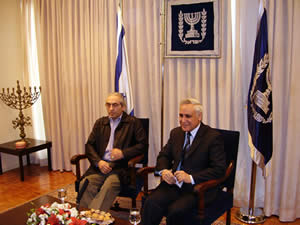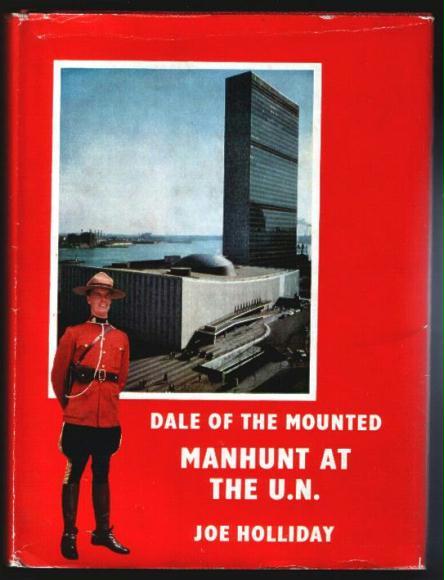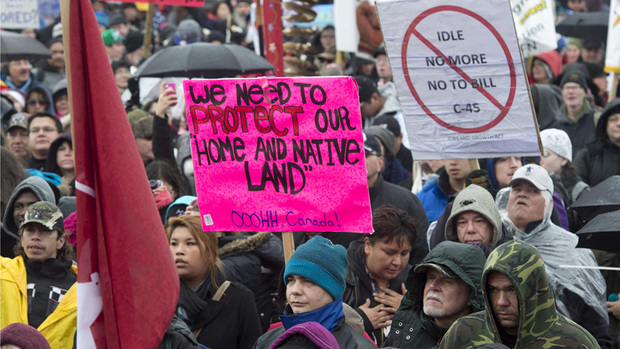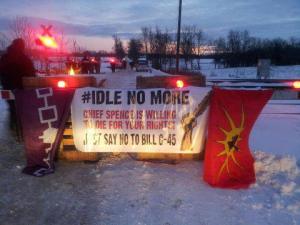 This month, Canada’s media solemnly related “the sad truth that the country engaged in a deliberate policy of attempted genocide against First Nations people”, referring to government-sponsored abuse of Native children a century ago, which Canada’s Chief Medical Officer Peter Bryce exposed in 1907, but which was hushed up. Bryce was fired and the post of chief medical officer abolished in 1919.
This month, Canada’s media solemnly related “the sad truth that the country engaged in a deliberate policy of attempted genocide against First Nations people”, referring to government-sponsored abuse of Native children a century ago, which Canada’s Chief Medical Officer Peter Bryce exposed in 1907, but which was hushed up. Bryce was fired and the post of chief medical officer abolished in 1919.
This, of course, is a terrible crime, though the facts have long been known (the study referred to was published in 2006). A study published by Ian Mosby in May this year added fuel to the fire, revealing that from 1942–1952, the government conducted “nutritional experiments” on Native children in the infamous residential schools, where milk rations were halved for years, essential vitamins not issued, and dental services withheld as gum health was a measuring tool for scientists and any care would distort research.
The media splash was made by Phil Fontaine, former chief of the Assembly of First Nations, and Bernie Farber, senior vice-president of Gemini Power Corporation and former head of the Canadian Jewish Congress (since 2011 the Centre for Israel and Jewish Affairs—CIJA).
This is not the first time that CIJA has expressed ‘support’ for beleaguered Natives. For years now, just as hundreds of Canadian MPs, MPPs, police officials, what-have-you are invited regularly on junkets to Israel by CIJA or other pro-Israeli groups, CIJA self-proclaimed “social activists” are now courting local Native groups with similar free trips. For instance, Winnipeg CIJA official Shelley Faintuch organized a 10-day Cree Youth Leadership Development Mission to Israel in 2012 and again this year with the support Norway House Cree Nation Chief Ron Evans “to develop the next generation of First Nations leaders by looking through the lens of Israel’s inspiring story.”
Europe, Canada and US,
Natives and Israel: Manipulating genocide
- Written by Eric Walberg Эрик Вальберг/ Уолберг إيريك والبرغ
Human Rights: Canada in the dock
- Written by Eric Walberg Эрик Вальберг/ Уолберг إيريك والبرغ
 The world is taking note of the ruling Conservatives’ shameful betrayal of Canada’s once admirable reputation as a fair country, sincerely working on the world stage to improve the lot of the disadvantaged and suffering. In the UN Human Rights Council’s Universal Periodic Review, Canada was criticized to such an extent that the Council decided to send the Special Rapporteur on the Rights of Indigenous Peoples, and representatives of the Committee on the Elimination of Discrimination Against Women and the Inter-American Commission on Human Rights, to investigate.
The world is taking note of the ruling Conservatives’ shameful betrayal of Canada’s once admirable reputation as a fair country, sincerely working on the world stage to improve the lot of the disadvantaged and suffering. In the UN Human Rights Council’s Universal Periodic Review, Canada was criticized to such an extent that the Council decided to send the Special Rapporteur on the Rights of Indigenous Peoples, and representatives of the Committee on the Elimination of Discrimination Against Women and the Inter-American Commission on Human Rights, to investigate.
Minister of Foreign Affairs spokesman Joseph Lavoie dismissed complaints by
*China of “widespread racial discrimination”,
*Iran of “child sexual exploitation and trafficking, the right to food, discriminatory law and regulation against indigenous people and minority groups including Muslim, Arab and African communities”,
*Pakistan of “increased poverty and unemployment rate among immigrant communities”,
*Egypt of “racial profiling in law-enforcement action”, and
*Cuba of “racism and xenophobia” in Canada,
insisting that “Canada has a track record of being a human rights leader, at home and around the world.”
Democracy Canadian-style Part II: At home
- Written by Eric Walberg Эрик Вальберг/ Уолберг إيريك والبرغ
 Given Canada's neo-realpolitik internationally, it is no surprise that Canadian domestic affairs are following an identical logic. In the past, Canada appeared to stand apart from such settler colonies as the US and Australia in dealing more fairly with its natives. John Ralston Saul argues for the "originality of the Canadian project", that contained elements of a rejection of the Enlightenment project of Europe/ the US, which was based on secular rationality and liberal revolution. Canada was never a monolithic nation state, but rather based on consensus, incorporating the native philosophy of man as part of nature. Canada's policy of constant immigration furthermore fuelled the need for a multicultural "intercultural" ethic. It was never a 'melting pot' and Canadians have always prided themselves on their lack of US-style national chauvinism. (Europe is formally multicultural because of its need for cheap immigrant labor, but old imperial nationalisms live on.)
Given Canada's neo-realpolitik internationally, it is no surprise that Canadian domestic affairs are following an identical logic. In the past, Canada appeared to stand apart from such settler colonies as the US and Australia in dealing more fairly with its natives. John Ralston Saul argues for the "originality of the Canadian project", that contained elements of a rejection of the Enlightenment project of Europe/ the US, which was based on secular rationality and liberal revolution. Canada was never a monolithic nation state, but rather based on consensus, incorporating the native philosophy of man as part of nature. Canada's policy of constant immigration furthermore fuelled the need for a multicultural "intercultural" ethic. It was never a 'melting pot' and Canadians have always prided themselves on their lack of US-style national chauvinism. (Europe is formally multicultural because of its need for cheap immigrant labor, but old imperial nationalisms live on.)
Democracy Canadian-style Part I: Abroad
- Written by Eric Walberg Эрик Вальберг/ Уолберг إيريك والبرغ
 Canada's role in the postmodern imperial world is as a poster child for promoting formal electoral democracy -- at home and abroad. Internationally, instead of offering peacekeeping troops to the UN, as in days of yore, and promoting grassroots development in the third world, it takes orders directly from its US-Euro masters, helping them invade countries if necessary to set up the mechanisms for elections, and ignoring for the most part the real problems that the poor of the world face. It uses its foreign diplomatic service not to promote peace and social justice, but to support the needs of Canadian corporations abroad and facilitate their quest for profits.
Canada's role in the postmodern imperial world is as a poster child for promoting formal electoral democracy -- at home and abroad. Internationally, instead of offering peacekeeping troops to the UN, as in days of yore, and promoting grassroots development in the third world, it takes orders directly from its US-Euro masters, helping them invade countries if necessary to set up the mechanisms for elections, and ignoring for the most part the real problems that the poor of the world face. It uses its foreign diplomatic service not to promote peace and social justice, but to support the needs of Canadian corporations abroad and facilitate their quest for profits.
This has been the strategy in Afghanistan, Libya and now Mali, the latter in cooperation with France, with Canada providing air transport of French military equipment. It is the mirror image of its treatment of Canada's native people, who are force-fed a similar formal role in Canada's political system, where formal equality -- as exemplified in Bill C-45 -- is touted in order to mask the real problems natives face, and -- as if by coincidence -- at the same time pave the way to take control of the natural resources that are the natives' heritage.
Canada's First Nations: Expect resistance
- Written by Eric Walberg Эрик Вальберг/ Уолберг إيريك والبرغ
 “Respect Existence or Expect Resistance”, chant native Canadians as a showdown 11 January loams with Prime Minister Harper.
“Respect Existence or Expect Resistance”, chant native Canadians as a showdown 11 January loams with Prime Minister Harper.
Sparked by Attawapiskat Chief Theresa Spence’s hunger strike on tiny ‘Victoria’ Island near Ottawa's Parliament Hill, now in its third frigid week, the native uprising across Canada is in fact the latest manifestation of the world's colonized peoples trying to throw off the shackles of imperialism. An exciting moment, one of vital import for us all.
Their warrior path brings to mind Egyptian Muslims fighting their westernizers and Mubarakite old guard since the revolution in January 2011, or the struggle by Palestinian natives against Israeli theft of their land. It is a continuation of the Iranian people's struggle in the face of unrelenting subversion from the West. It’s no coincidence that Cairenes were some of the demonstrators at Canadian embassies, or that native activist-leader Terrance Nelson recently was offered support in Tehran for his efforts to gain a seat at the OPEC table for the real owners of Canada’s oil and gas resources.
More Articles...
Page 13 of 26





